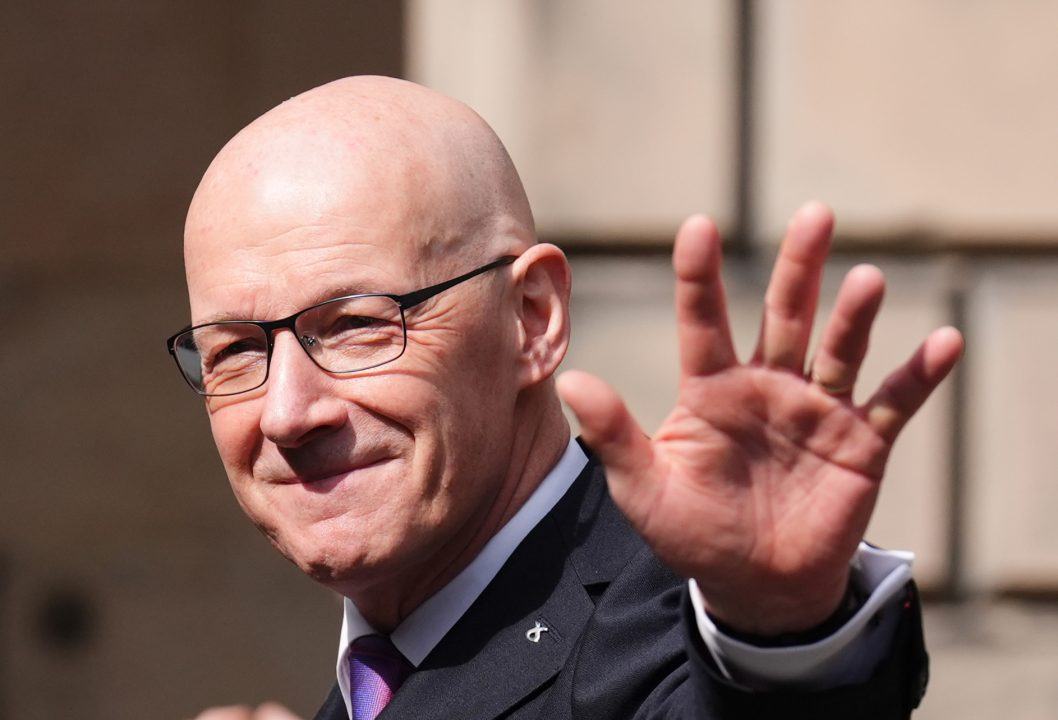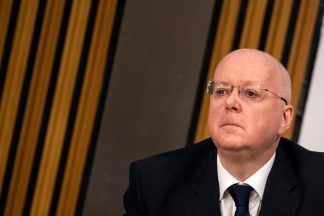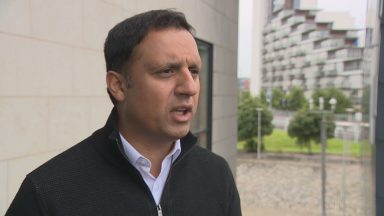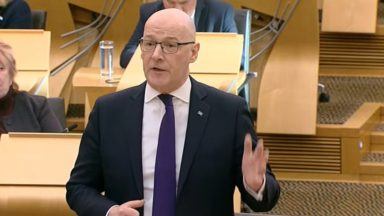Scotland’s First Minister John Swinney has said that independence can be delivered within five years “because the arguments for it are compelling”.
Swinney told Sky News that independence was the “answer” to the cost of living crisis and Brexit, since these were the result of decisions taken in Westminster.
He also denied that the appointment of Kate Forbes as his deputy would make his Government less socially progressive, insisting that the rights of LGBT people remained a priority.
When asked whether independence could happen in five years, Swinney told the broadcaster: “I think independence can be delivered in that timescale because the arguments for it are compelling.
“If we look at two of the biggest issues we face as a country in Scotland: the effect of the cost of living and the implications of Brexit.
“Both of those major strategic factors that are doing severe economic and social damage to Scotland are because of bad decisions taken in Westminster, and independence is the answer to that.”
However, he acknowledged that the support for independence was not yet “compelling”.
“We have got work to do to build greater support for independence, to make that support level compelling within Scotland, and that’s what my leadership will be about”, he said.
When asked whether the appointment of Kate Forbes as his deputy meant the Government would become less socially progressive, he insisted that his Government remained committed to protecting and enhancing the rights of LGBT people.
Forbes, a member of the Free Church of Scotland, has previously faced criticism for her social views on gay marriage and abortion rights and the Scottish Greens have expressed concerns about her attitudes towards some social issues.
Speaking from Bute House in Edinburgh, Swinney said: “The protection of the rights of LGBT individuals in our society is absolutely fundamental to my Government – the protection of those rights and the enhancement of those rights.”
He also said he had not discussed abandoning the controversial Gender Recognition Reform Bill with Forbes when appointing her as his deputy, saying simply that the “reality of the situation” was that the courts had ruled they were unable to proceed with it.
In January of last year, Scottish secretary Alister Jack blocked the Scottish Government’s gender reforms, invoking for the first time Section 35 of the Scotland Act, claiming it interfered with UK-wide equalities legislation.
In December, the Court of Session ruled that the action was lawful, despite a Scottish Government challenge.
The Bill would have made it easier for a transgender person to obtain a gender recognition certificate by removing the need for a medical diagnosis, as well as reducing the minimum age and the time required for someone to live in their acquired gender.
But opponents of the legislation said it could impact on protections for women and girls.
Swinney said: “The reality of the situation we face is that the Supreme Court has said that we can’t legislate in that area, we can’t take forward that legislation, so I accept the rule of law, and that’s the position we find ourselves in.”
A UK Government spokesperson said: “People in Scotland want both their Governments to be concentrating on the issues that matter most to them, like growing our economy, further reducing inflation and improving public services.
“We want to work constructively with the Scottish Government to tackle our shared challenges because that is what families and businesses in Scotland expect.
“This is not the time to be talking about distracting constitutional change.”
Follow STV News on WhatsApp
Scan the QR code on your mobile device for all the latest news from around the country


 PA Media
PA Media

























